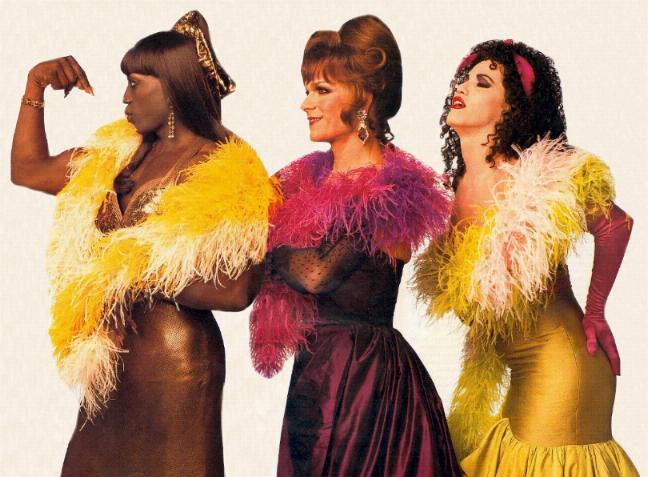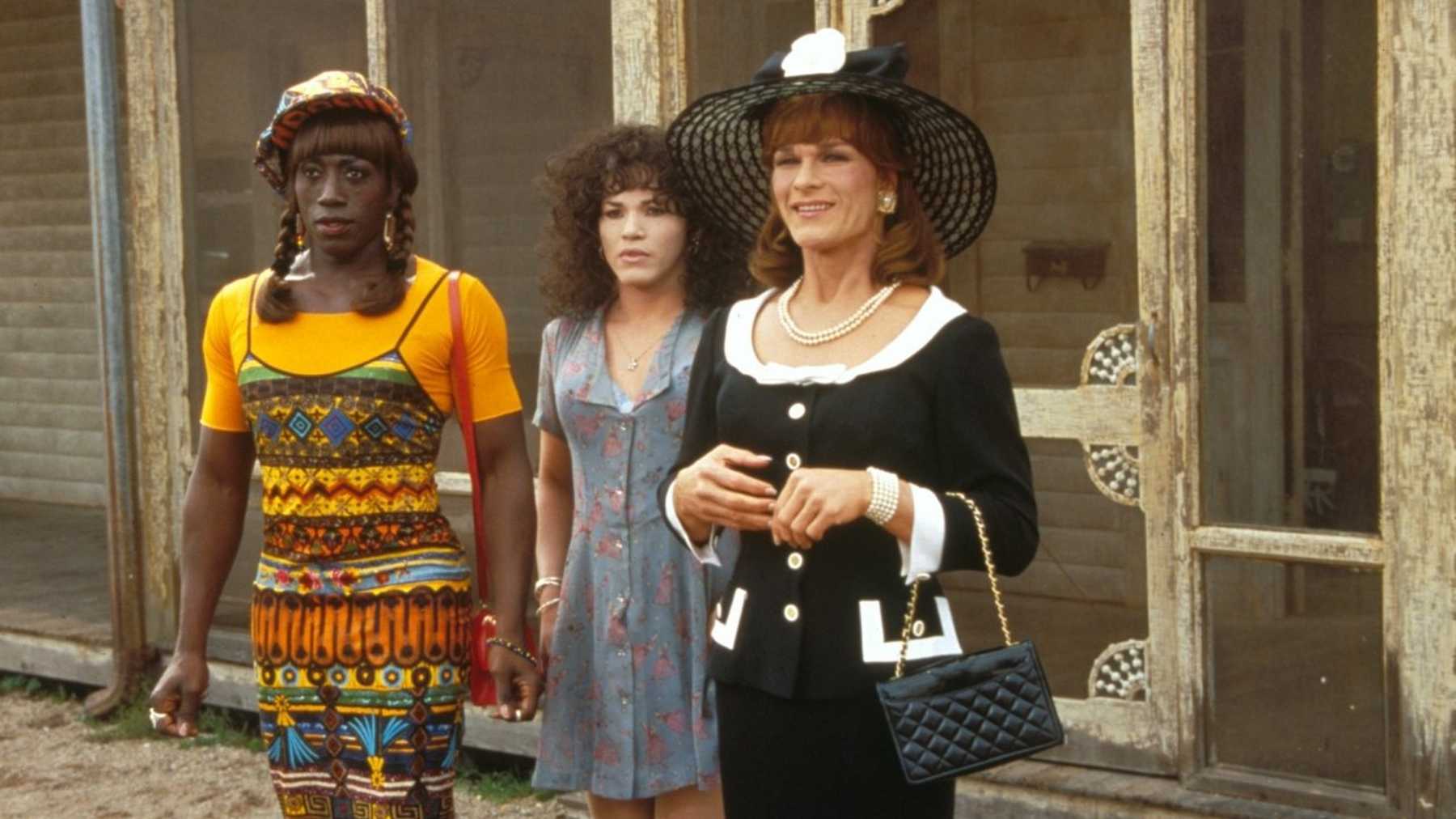In Over & Overs we ask Team Experience to share movies that they've seen countless times and tell us why. Here's Chris Feil...
The 90s were an interesting time to be an odd kid strangely compelled to the sight of men in dresses. Drag comedies had a kind of resurgence into the mainstream, particularly with Robin Williams headlining both Mrs. Doubtfire and The Birdcage to huge popularity. But the one that struck my imagination and sparked an undefined sense of self-identification was Beeban Kidron’s oddly named To Wong Foo, Thanks for Everything, Julie Newmar.

For gay folk, To Wong Foo makes for such easy, layered rewatching. Over the years, self-awareness not only reveals the double entendres in Douglas Carter Beane’s screenplay but also deepens with a growing understanding of what camp is and how it functions. For my generation of gay person, we grew with it. Returning to the movie means returning to previous baby gay versions of ourselves not fully gestated. But in these drag queens searching for glory and affirmation, the film teaches us that we are always in a process of becoming ourselves and accepting ourselves.
More importantly, To Wong Foo presented an unapologetically, unwaveringly, and uncommonly pro-gay stance for a studio film at the time. Even if Patrick Swayze’s Vida Boheme desires the affirmation of her family, the film never suggests that she needs it to be successful or complete. Wesley Snipes’ Noxeema Jackson can find community in these small town women, but she isn’t diminished by their conventionalism. And John Leguizamo’s Chi-Chi Rodriguez doesn’t have to have it all figured out in order to be a winner.
Do these actors get the credit they deserve for these performances, in all their hilarious and affectionate charms? Not by a long stretch. Where other actors fall into caricature of gayness, this trio all feels organic, unmocking, and unmired in accidental homophobia. Plus each is incredibly funny in the classic, rompy fashion of bygone farces of the 50s and 60s, truly referential of the likes of Some Like It Hot.
Whereas young gays can almost be pandered to these days (especially if you’re white), To Wong Foo felt like an oasis. Even with its quite heterosexual leads donning dresses and wigs, the film is triumphantly gay-affirming in a way that stirs a great deal of gratitude for my younger self not fully aware of what he was watching and why he was so inexplicably drawn to it. Here the film’s sentimentality and cheesy emotions serve some purpose - the kind that makes for casual rewatching ease for a straight audience, and a restorative one for queer folk.
On a more basic level, the film can’t be denied for its growing delights in the supporting ensemble you might have missed when previously paying attention to the stars. Stockard Channing as abused housewife Carol Ann likely didn’t slip notice, but her performance is an added layer of nuance that keeps the film in the real world. But the laissez-faire drollness of Blythe Danner, the dry badassery of Beth Grant, and the silent charm of Alice Drummond all make for consistently rewarding supporting players. And of course there’s some familiar gay faces like Coco Peru, Lady Bunny, and Hedda Lettuce. Imagine RuPaul making a joke as daring today as his confederate flag-wearing character Rachel Tensions.

It would be years until I saw the more overtly queer and grownup delights of The Adventures of Priscilla, Queen of the Desert, which is fair to say To Wong Foo was slightly ripping off. But this was the gay film that feels attached to my entire life, and I’m know this isn’t an exclusive experience. While this film may have stolen some of its invention from Priscilla and Paris is Burning and even John Waters, today’s films intended for queer audiences like Mamma Mia! also owe To Wong Foo a debt of gratitude.
Previously in Over & Overs...
- Moonstruck (1987) by Deborah
- Indiana Jones and the Last Crusade (1989) by Lynn
- The Hudsucker Proxy (1994) by Mark
- Sugar & Spice (2001) by Spencer
- Marie-Antoinette (2006) by Claudio
- Julie & Julia (2009) by Ginny
- Moonrise Kingdom (2012) by Ginny